Belief of Muslims
The consensus belief among Muslims is that the Jews could neither kill Prophet Jesus (peace be upon him) nor crucify him. Rather, Allah raised him to the heavens, and he will return to earth near the Day of Judgment. Our belief is proven by the Quran, Hadith, consensus (Ijma), and continuous transmission (Tawatur).
Belief of Qadianis (Ahmadiyya)
The Qadianis believe that the Jews crucified Prophet Jesus (peace be upon him) and that he remained on the cross for a few hours. However, he did not die from crucifixion but was severely wounded. After three hours, he was taken down from the cross in an injured state and placed in a cave, where his wounds were treated. He later recovered and, along with his mother, Mary (peace be upon her), migrated from Palestine to Kashmir via Afghanistan. He lived in Kashmir for 87 years and then passed away. His grave is said to be in the Khanyar neighborhood of Kashmir.
The Qadiani belief is not supported by the Quran or Hadith. Mirza Ghulam Ahmad Qadiani attempted to justify this belief through fictional narratives but failed.
Mirza Ghulam Ahmad Qadiani’s Claims
In his writings, Mirza Ghulam Ahmad Qadiani denies the traditional Islamic and Christian beliefs regarding Prophet Jesus (peace be upon him). He rejects:
- Death on the Cross: Claims Jesus did not die but was only injured and later revived.
- Ascension to Heaven: Denies Jesus was raised bodily to heaven, instead claiming he migrated to Kashmir and died there.
- Christian Atonement Doctrine: Rejects the Christian belief that Jesus died as a sacrifice for sins.
- Second Coming: Argues that the idea of Jesus’ return is irrational and against the Quran.
- Basis for His Own Claim: Since he denies Jesus’ return, he positions himself as the “Promised Messiah” (Masih Ma‘ud).
(Reference: Supplement “Haqiqat-ul-Wahi,” Ruhani Khazain, Vol. 22, p. 39)
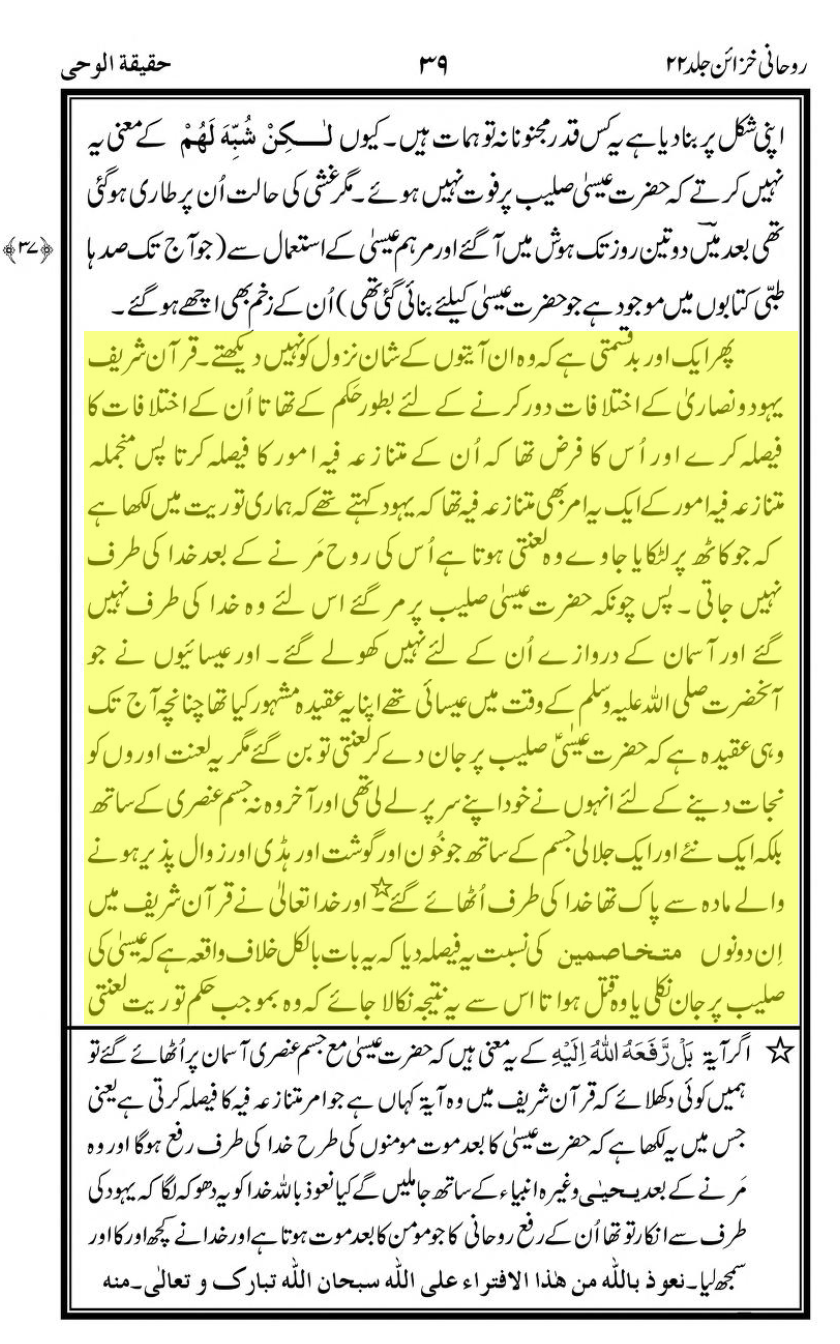
Interestingly, Mirza himself held the traditional Muslim belief for 52 years before changing his stance.
Principles for Discussing the Issue of Jesus’ Ascension & Return with Qadianis
- Purpose of Discussion: To reach a clear understanding. If an error is realized during debate, one should retract it.
- Common Ground: Both sides should agree on a shared reference point—such as a recognized scholar—to interpret Quranic verses.
- Challenge to Qadianis:
- Present any Quranic verse.
- Agree on a Mujaddid (Reviver of Faith) from 13 centuries of Islamic history whom Mirza himself accepted.
- If that scholar’s interpretation supports Jesus’ death and no return, we will accept the Qadiani view.
- If the scholar affirms Jesus’ ascension and future return, Qadianis must accept the traditional view.
However, Qadianis avoid this challenge because:
- No recognized Mujaddid in Islamic history ever claimed Jesus died and would not return.
- All scholars unanimously affirmed Jesus’ ascension and second coming.
Mirza Ghulam Ahmad’s Own Statements Supporting Traditional Scholarship
Mirza himself acknowledged:
“The Imams and elders of every century were granted understanding of the Quran. They interpreted its ambiguous parts using Prophetic Hadith, preserving its teachings from distortion.”
(Reference: “Ayyam-us-Sulh,” Ruhani Khazain, Vol. 14, p. 288)
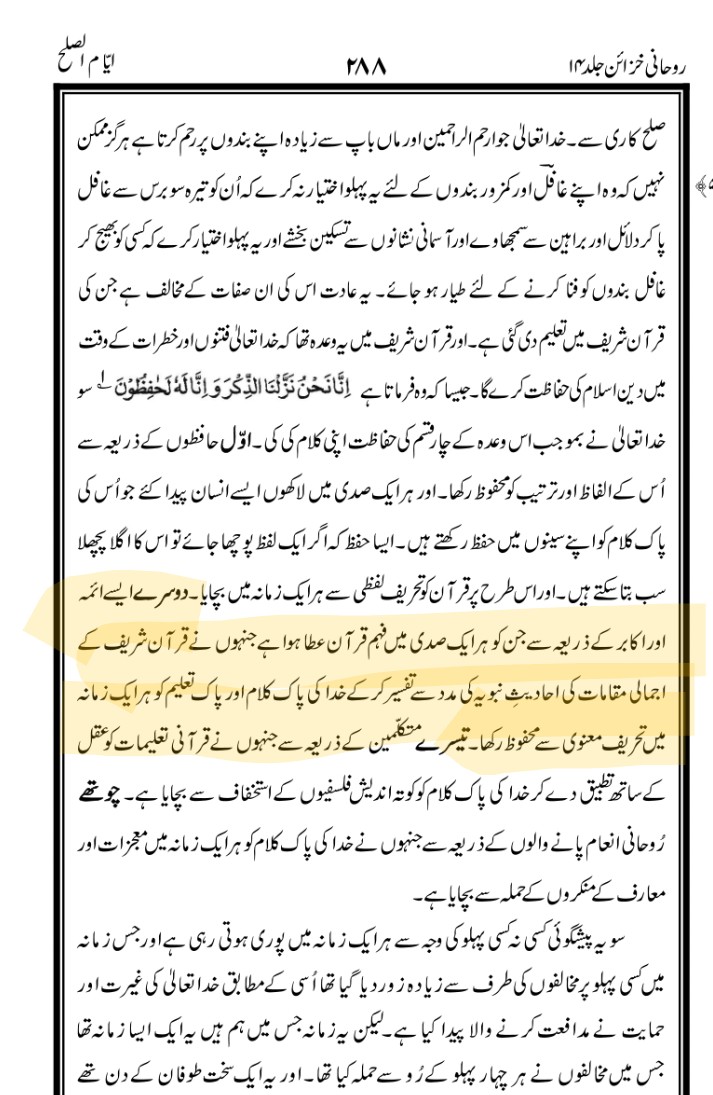
“The fundamentals of faith, which make a person a Muslim, have always been clearly transmitted in every era.”
(Reference: “Karamatus-Sadiqin,” Ruhani Khazain, Vol. 6, p. 62)
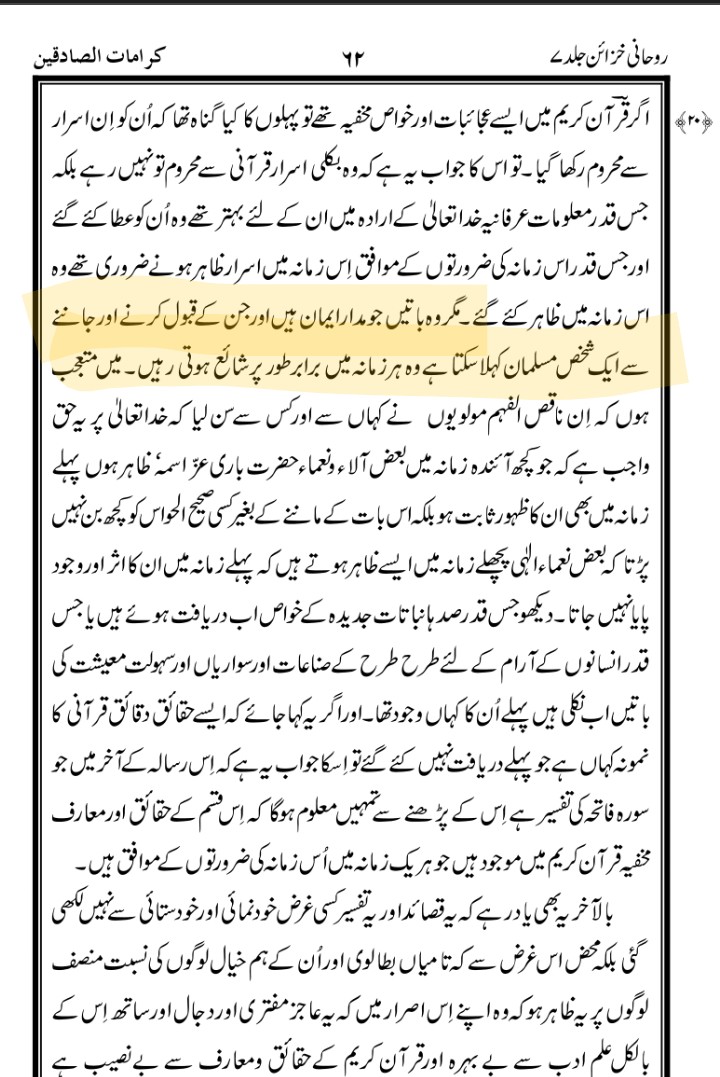
“To invent new meanings contrary to the Quran’s clear, continuous understanding is nothing but heresy and distortion.”
(Reference: “Izala-e-Auham,” Part 2, Ruhani Khazain, Vol. 3, p. 501)

“Revivers (Mujaddids) do not add or subtract from religion; they restore lost teachings. Denying them is defiance of Allah’s command.”
(Reference: “Shahadat-ul-Quran,” Ruhani Khazain, Vol. 6, p. 344)
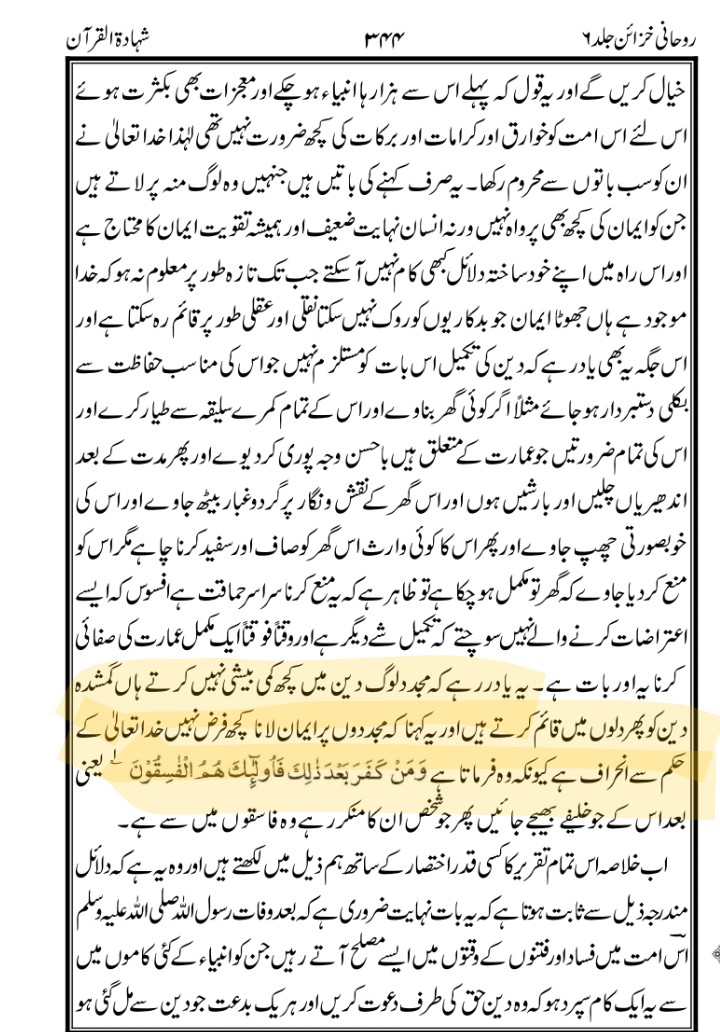
“Mujaddids are granted understanding of the Quran.”
(Reference: “Ayyam-us-Sulh,” Ruhani Khazain, Vol. 14, p. 288)
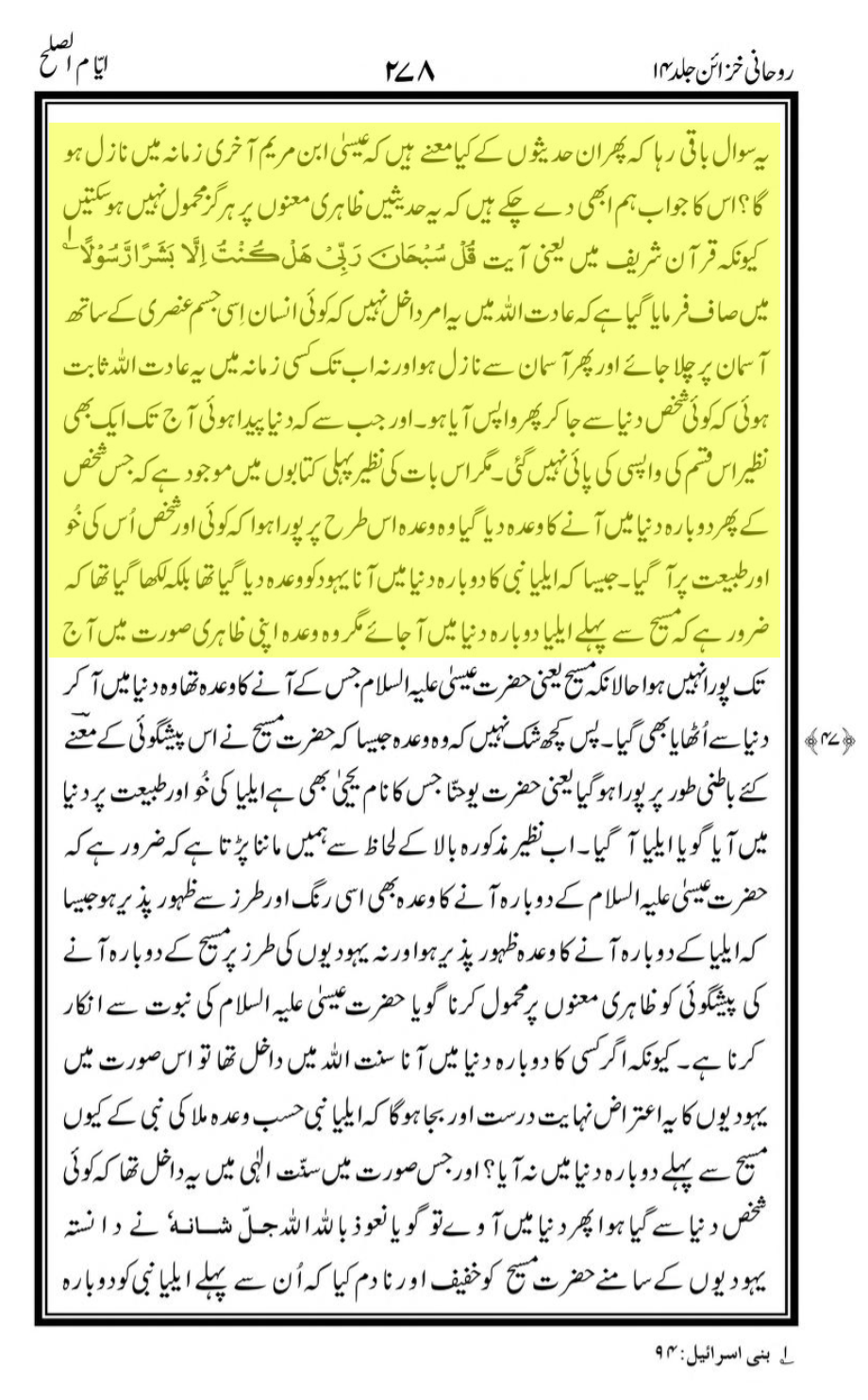
List of Recognized Mujaddids (1st–13th Century)
(Accepted by Mirza Ghulam Ahmad, as per “Asal Musaffa” by Mirza Khuda Bakhsh Qadiani)
- 1st Century: Umar bin Abdul Aziz, Qasim, Mak-hul
- 2nd Century: Imam Shafi‘i, Imam Ahmad bin Hanbal, Junayd Baghdadi
- 3rd Century: Abu Hasan Ash‘ari, Imam Tahawi
- 4th Century: Imam Baqillani, Al-Hakim Nishapuri
- 5th Century: Imam Ghazali
- 6th Century: Fakhruddin Razi, Abdul Qadir Gilani
- 7th Century: Ibn Taymiyyah, Ibn Qayyim
- 8th Century: Ibn Hajar Asqalani
- 9th Century: Jalaluddin Suyuti
- 10th Century: Mulla Ali Qari
- 11th Century: Aurangzeb, Mujaddid Alf Thani (Ahmad Sirhindi)
- 12th Century: Shah Waliullah Dehlawi, Muhammad ibn Abdul Wahhab
- 13th Century: Syed Ahmad Barelvi, Shah Abdul Aziz
Final Challenge
Since Mirza accepted these scholars, Qadianis must:
- Pick any Quranic verse on Jesus (peace be upon him).
- Agree on a Mujaddid from the list.
- If the scholar’s interpretation supports Jesus’ ascension and return, Qadianis must concede.
But they will never agree—because history is against them.